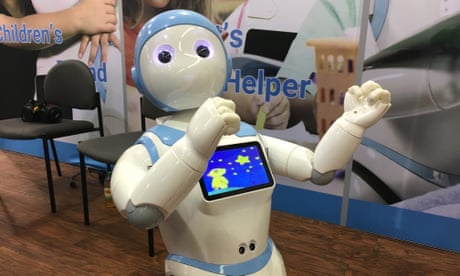The shortfall in productivity compared with other developed economies has long been Britain’s economic achilles heel. It is a problem that Conservative and Labour chancellors have been grappling with for decades.
Productivity is a guide to how good a country is at delivering the goods and services that are bought and sold. Technically, it is the rate of output per unit of input, measured per worker or by the number of hours worked. In layman’s terms, it is a measure of what goes in and what comes out.
In some sectors, productivity is easy to measure. A factory that makes 1,000 cars a day with 50 workers is twice as productive as a factory that requires 100 workers to do the same job. In other parts of the economy, assessing whether productivity has improved is harder and less objective.
At face value a fast-food joint that employed the same number of chefs to cook the same number of hamburgers as they did a year earlier would not be showing any increase in productivity. But if the quality of the hamburgers improved, that would be a productivity gain and statisticians would try to capture the improvement in the official figures.
There are a number of ways in which a firm can make itself more productive. It can invest in new machinery that makes the production process more efficient. It can employ more highly skilled staff. It can train workers so that they can fully exploit the equipment they are using.
It is through productivity improvements that living standards rise. For many years, the annual increase in productivity in the UK averaged around 2%, although there were periods when it was lower and periods when it was higher.
Each year since the early 1990s, the Office for National Statistics has published an international comparison of productivity. This showed that UK productivity was 9% lower than the average of the other six members of the G7 (the US, Japan, Germany, France, Italy and Canada) but this gap narrowed to 4% by the time of the 2007 financial crisis.
Since then, however, productivity in the UK has barely grown and the gap with the rest of the G7 has widened to 18%. The gap with Germany is 35% and with the US 30%.
There have been a number of explanations for the dramatic deterioration in productivity: the availability of unskilled cheap labour has deterred firms from investment; the poor quality of UK roads, railways and broadband network; the shrinkage of the financial sector, which had been a source of high-productivity jobs in the boom before the 2007 crisis; and the misallocation of capital to “zombie” firms kept alive by ultra-low interest rates rather than to dynamic new enterprises.
The government’s autumn statement document states that improving productivity is the “central long-term economic challenge” for the UK. Philip Hammond, the chancellor, has identified better infrastructure, technology and skills as the foundations for doing so, which is why he unveiled a new £23bn national productivity investment fund and backed Sir Charlie Mayfield’s productivity council in his autumn statement. But this is a goal that requires long-term investment and commitment.


